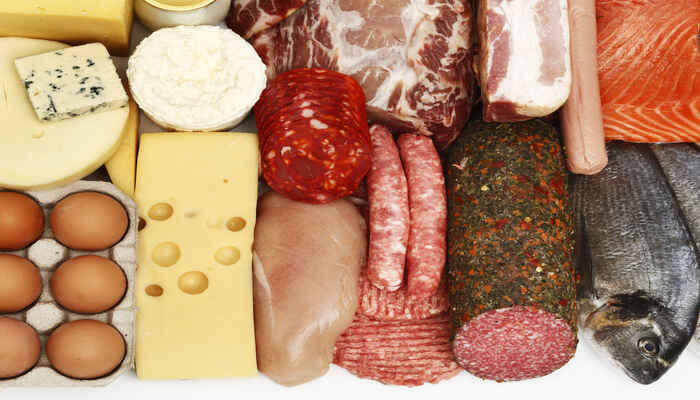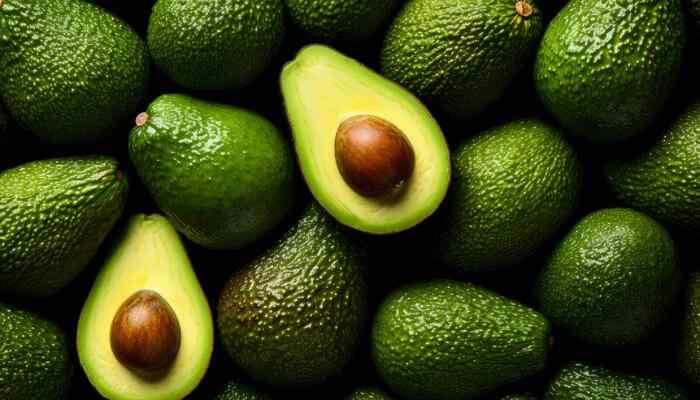For decades, fats have been unfairly vilified, with many people believing that consuming fat leads to weight gain and various health issues. However, the truth is far from this common misconception. Fats play an essential role in maintaining overall health, supporting vital bodily functions, and even aiding in weight management when consumed correctly.
In this article, we will explore the functions of fats, their different types, how they became falsely labelled as villains, and the best sources of healthy fats.
NCBI Reference: A short history of saturated fat: the making and unmaking of a scientific consensus
The Essential Role of Fats in the Body
Fats are one of the three primary macronutrients, alongside carbohydrates and proteins. They serve several critical functions in the body, including:
- Energy Source: Fats provide a dense source of energy, supplying 9 calories per gram—more than double the energy of carbohydrates and proteins.
- Cell Membrane Structure: Every cell in the body requires fat to maintain its structure and function.
- Hormone Production: Fats contribute to the synthesis of essential hormones, including testosterone and estrogen.
- Vitamin Absorption: Certain vitamins, such as A, D, E, and K, are fat-soluble, meaning they require fats for proper absorption.
- Brain Function: The brain is composed of about 60% fat, making healthy fats crucial for cognitive function and mental well-being.
- Inflammation Regulation: Some types of fats help regulate inflammation and support immune function.
Types of Fats: The Good, the Bad, and the Misunderstood
Not all fats are created equal. Understanding the different types of fats can help you make informed dietary choices.
1. Saturated Fats: Friend or Foe?

Saturated fats have been a topic of controversy for years, with earlier studies linking them to heart disease. However, recent research suggests that they are not as harmful as once believed. Saturated fats are found in animal products like meat, dairy, and certain plant sources such as coconut oil. While moderation is key, consuming them in a balanced diet does not necessarily increase heart disease risk.
You may also like: Top 10 Healthy Foods Must Include In Diet
2. Unsaturated Fats: The Healthy Fats
Unsaturated fats are classified into two main types: monounsaturated fats (MUFAs) and polyunsaturated fats (PUFAs). These fats are considered “good fats” due to their numerous health benefits.
- Monounsaturated Fats (MUFAs): Found in foods like olive oil, avocados, and nuts, these fats help reduce bad cholesterol levels (LDL) and support heart health.
- Polyunsaturated Fats (PUFAs): These include omega-3 and omega-6 fatty acids, which are essential for brain function, reducing inflammation, and supporting cardiovascular health. Sources include fatty fish, flaxseeds, walnuts, and sunflower seeds.
3. Trans Fats: The True Villains

Unlike naturally occurring fats, trans fats are artificially created through a process called hydrogenation, which turns liquid oils into solid fats. These fats are commonly found in processed foods, margarine, and baked goods. Studies have shown that trans fats increase the risk of heart disease, raise LDL cholesterol levels, and promote inflammation. Many health organizations recommend eliminating trans fats from the diet altogether.
NCBI Reference: Trans fats—sources, health risks and alternative approach – A review
How Fats Became the Villains
The demonization of fats began in the 20th century when studies linked high cholesterol levels to heart disease. The infamous “low-fat” diet trend gained momentum in the 1970s and 1980s, encouraging people to avoid dietary fats. Food manufacturers responded by producing low-fat or fat-free products, often replacing fats with sugar and refined carbohydrates.
However, as research advanced, it became evident that reducing fat intake did not necessarily lead to better health outcomes. In fact, excessive consumption of processed carbohydrates contributed to obesity and metabolic disorders. The shift in scientific understanding now emphasizes the importance of choosing the right kinds of fats rather than eliminating them altogether.
Best Sources of Healthy Fats
To reap the benefits of healthy fats, it is essential to incorporate the right sources into your diet. Here are some of the best options:
1. Fatty Fish

Fish like salmon, mackerel, sardines, and trout are excellent sources of omega-3 fatty acids, which support brain health, reduce inflammation, and lower the risk of heart disease.
2. Avocados

Avocados are packed with monounsaturated fats, fiber, and essential nutrients. They help promote heart health and keep you feeling full for longer.
3. Nuts and Seeds
Almonds, walnuts, chia seeds, and flaxseeds provide a combination of monounsaturated and polyunsaturated fats, as well as antioxidants and fiber.
4. Olive Oil

Extra virgin olive oil is rich in monounsaturated fats and polyphenols, which have anti-inflammatory properties and protect against heart disease.
5. Coconut Oil (In Moderation)

Although coconut oil is high in saturated fats, it contains medium-chain triglycerides (MCTs), which may offer benefits for metabolism and brain function.
6. Dark Chocolate
Dark chocolate contains healthy fats along with antioxidants, making it a delicious yet nutritious addition to a balanced diet.
7. Eggs

Eggs, particularly whole eggs, are a great source of healthy fats, including monounsaturated and polyunsaturated fats. The yolk is rich in omega-3 fatty acids, choline, and essential vitamins like A, D, and E. Despite past misconceptions about cholesterol, research has shown that moderate egg consumption does not negatively impact heart health and can be part of a well-balanced diet.
You may also like: The Ultimate Guide: How to Lose Weight And Fat Quickly
Eating Fats Won’t Make You Fat
Conclusion
Fats are not the enemy. They are an essential component of a healthy diet, playing a crucial role in energy production, brain function, and overall well-being. The key is to choose the right types of fats while minimizing unhealthy trans fats and excessive processed foods. By incorporating healthy fats such as those from avocados, nuts, olive oil, and fatty fish, you can support your body’s functions while enjoying a nutritious and balanced diet. It’s time to move beyond the outdated fear of fats and embrace their benefits for optimal health.
You may also like: Vitamin B12: Deficiency, Symptoms and Benefits
FAQs (Frequently Asked Questions)
Saturated fats are not inherently bad. When consumed in moderation, they can support hormone production and cell function. However, excessive intake may impact heart health, so balance them with unsaturated fats for overall wellness.
Healthy fats include monounsaturated and polyunsaturated fats, which support heart health, brain function, and hormone production. Sources include avocados, nuts, seeds, fatty fish, and olive oil. These fats help reduce inflammation and improve overall well-being.
Trans fats are artificially processed fats found in margarine, fried foods, and baked goods. They increase LDL (bad) cholesterol, lower HDL (good) cholesterol, and raise the risk of heart disease, inflammation, and obesity. Avoid them for better health.
Saturated fats are fats primarily found in animal products like meat, dairy, and some plant oils like coconut oil. While once considered harmful, recent research shows they are not inherently bad when consumed in moderation within a balanced diet.
Saturated fats are solid at room temperature, found in animal products. Unsaturated fats are liquid, found in plant-based oils, nuts, and fish. Unsaturated fats promote heart health, while excessive saturated fat intake may contribute to cholesterol issues.
Fats are essential macronutrients that provide energy, support cell function, aid in vitamin absorption, and regulate hormones. They include saturated fats, unsaturated fats, and trans fats. Healthy fats improve heart health, brain function, and overall metabolism.
Trans fats increase bad cholesterol (LDL), decrease good cholesterol (HDL), and promote inflammation. They significantly raise the risk of heart disease, stroke, and obesity. Found in processed foods, they should be avoided for optimal health.
Trans fats are the worst, as they increase heart disease risk. Excessive saturated fats may also be harmful. Healthy fats, such as unsaturated fats, should be prioritized for better cardiovascular and metabolic health.
Good fats include monounsaturated and polyunsaturated fats, found in foods like olive oil, avocados, fatty fish, and nuts. These fats support heart health, brain function, and reduce inflammation while promoting overall well-being.




